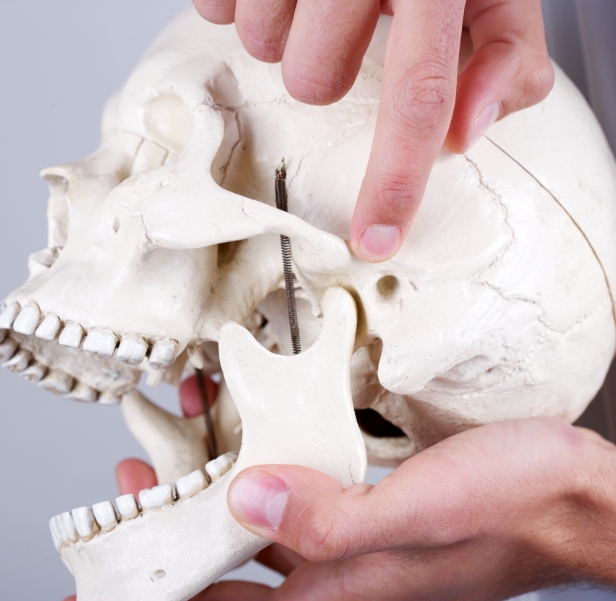Advanced TMJ Treatments for Jaw Pain in Birmingham, AL
It's a common misconception that TMJ refers to a disease that causes pain and discomfort in your jaw. TMJ actually refers to a specific joint in your jaw: the temporomandibular joint. There are at least 30 different disorders and conditions related to the TMJ, all of which can cause significant disruptions to your daily life, including eating, sleeping, and even communicating.
TMJ disorders all tend to cause pain and dysfunctional movement of your jaw joint and the surrounding muscles. They could be caused by behaviors like grinding or clenching your teeth in your sleep, by traumatic injuries to your face or neck, or other diseases and conditions that either damage the joint itself or the muscles surrounding it over time.
While TMJ disorders cannot be permanently resolved, our experienced oral and maxillofacial surgeon, Dr. Maniscalco, has the tools and techniques to restore comfort and function to your jaw. With the most precise diagnostic tools and leading-edge treatments, we can often provide relief to patients who have not had success elsewhere.



